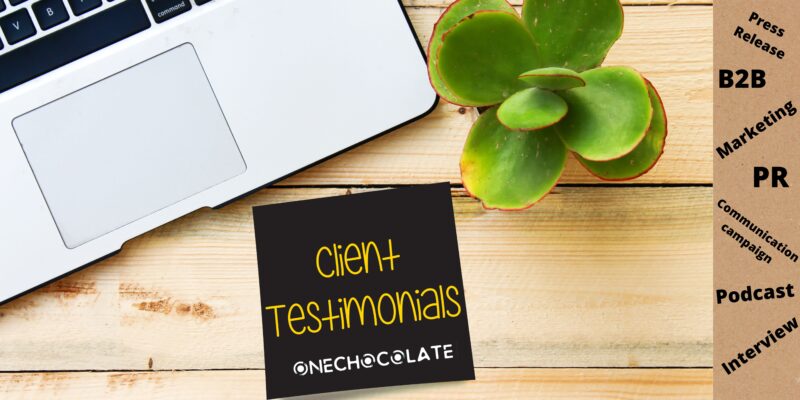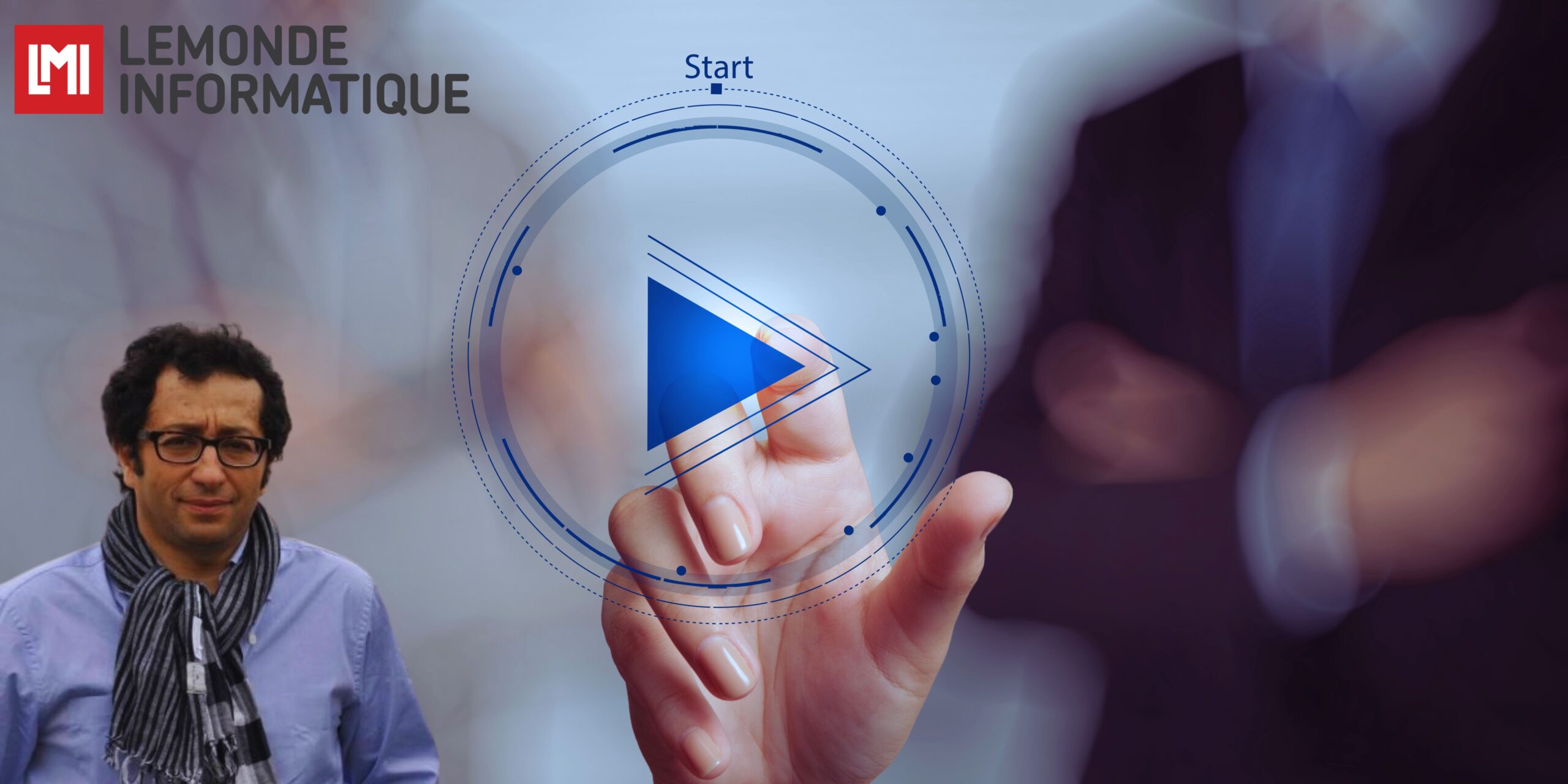
During an interview he gave last year for the Client Stories podcast by Stéphanie Wailliez, Edouard Fleuriau-Chateau, Managing Director of OneChocolate France, shared our common views on how to use this amazing tool for our customers’ PR campaigns.
In a B2B environment, customer testimonials are our most powerful tool so far, well beyond product communications which can sometimes appear too ‘marketing-oriented’ to journalists. “These success stories, which reflect the fruit of a company’s labour, allow journalists to really understand how a solution works. Moreover, it is livelier and more dynamic in the eye of the readers,” Edouard commented.
Yet, convincing your customers’ clients to deliver statements destined to be published in the media is not an easy task – especially when they operate within ‘sensitive’ industries such as IT security. Other factors may explain why it can be a challenge to obtain such testimonials. For instance, a protective communication department or an existing policy on customer testimonials could render the process even more strenuous. However, the Holy Grail is always within reach.
Therefore, it is essential to persuade the customer that their testimonial is valuable. “It is necessary to make an ally of the spokesperson. You should demonstrate that it is in their best interest to share their experience and opinion in the media, as they will be able to put their company and/or themselves forward by offering an expert view,” he added.
Another key point is to involve the communication department very early so as not to present them with a ‘fait accompli’. “Even if their reaction appears rather negative at first, as long as the window of opportunity is not closed, the situation may evolve in the next three to six months.”
As a PR agency, OneChocolate’s role is to act as a bridge and a “facilitator” between its client and its client’s customer. The agency needs to reassure them by offering to accompany them throughout the process and explaining all the different phases, from the creation of the testimonial to the publication of one or multiple stories. “We collect their testimonial, write the press release, but also prepare them for possible interviews by reaching out to the type of media they are targeting and listing the journalists’ potential questions.”
While it is recommended that customers offer their testimony between six months and two years after a contract signature in order to keep as close as possible to the actual state of the market, testimonials can take various forms depending on the client’s wishes. It can be a single press release, exclusive interviews, or both. “When we write a press release, we do our best to present our client with a draft in French – or in English for international companies – no longer than five days after the briefing, because we know that the validation process can be rather long,” Edouard concluded.
In any case, testimonials are worthwhile! At the end of the day, clients get great coverage – both qualitative and quantitative – in the media that are essential to them. It is important to keep in mind that press relations exist first and foremost in support of marketing and sales and offer great opportunities to generate visibility and leads.
Laure Guyon




